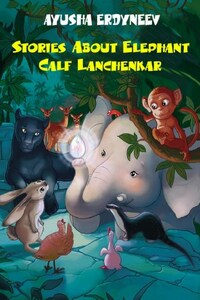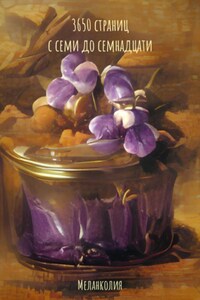“Tales of Baby Elephant Lanchenkar”, a book by children’s writer Ayusha Erdyneev, is directly linked with Buddhism and Buddhist philosophy. Main characters are identical with Buddhist Jatakas (stories of previous births of Buddha Shakyamuni) and bear Tibetan names. In Buddhist narrative tradition, it was white elephants who practiced and would reach the state of Boddhisattva. Elephants have supreme qualities that make them good examples.
The tale “Saving Parrot” is parable of Tibet’s destiny. White baby elephant Lanchenkar leads his friends (and other jungle folk), as Mahatma Gandhi would do, to the peaceful solving of their problems. He teaches them how to find happiness, that happiness is absence of both your and others’ suffering. Every tale encloses its own feature and its own lesson
Nowadays it is very important to convey onto children genuine values as kindness, open heart, and good will. Children raised with the ideals brought forward by Lanchenkar, there is the hope that the world may become a better, more harmonious place
To make this collection of tales more accessible to younger audience, an animated movie about Lanchenkar’s adventures may be of great help
Sincerely Robert Thurman, Professor Columbia University in New York City
How the White Elephant Calf Lanchenkar Came into This World
In torrid lands, in Hindustan there lived He-Elephant Lanchenpo and She-Elephant Lanchenmo. They were the King and the Queen of all elephants in the woods.
Lanchenpo was a kind and just king. He had ruled for many years, all was well in his elephant kingdom. The elephant population, and other animals, revered and respected the royal couple for their great wisdom.
But there was one thing that saddened King Lanchenpo – he had no heir. Lanchenpo wanted a son who would inherit his kingdom. Before he retired, Lanchenpo wanted to raise as wise and brave a king as himself.
***
“Go and ask the All-Knowing Cuckoo,” advised the caring Lanchenmo. “I hope she will help us.”
Lanchenpo did as he was told.
He walked and walked around the forest, lifting his head near tall trees in the hope of spotting the tiny bird.
Finally, in the dark thicket he heard the familiar cuckoo. The bird was predicting somebody a long – or short – life. Lanchenpo came closer and soon his small eyes spotted the All-Knowing Cuckoo on a tree branch.
“Hey, Cuckoo,” said the King. “Tell me if I’ll ever have an heir.”
“You will, O Elephant King Lanchenpo,” answered the Cuckoo. “But first you should ask the Old Crane who is going to depart this world soon. The Old Crane is one of the wisest creatures in this forest. He can choose the aspect in which to reincarnate on the Earth. Ask the Old Crane to appear as your son!”
The inspired Elephant King made for the swamp where the recluse Old Crane lived.
***
All his life the Old Crane had been seeking the meaning of life and omniscience.1
He was looking for the truth inside himself. In s state of profound meditation, he had been standing knee-deep in the swamp, seeing nothing around him. The Old Crane didn’t fly and seldom talked to other forest inhabitants. He would stop eating if he could. But he had to be alive to find the truth and the Crane took one grain of rice a day. The only way to grasp the truth, he believed was self-denial and asceticism2.
Forest inhabitants held the Old Crane in great respect and tried not to disturb him without necessity.
Standing at the edge of the marsh, the Elephant King was staring at the Crane. He placed his expectations on this bird towering like a statue over the marsh. Lanchenpo trod on slush, knelt down, took off his royal garland and put it on the Crane’s head. After that he appealed to the Crane. “O Great Sage, please, appear in our family in your next life!”
The Crane said nothing, but his head drooped with the weight of flowers by way of agreement. Having finally grasped the meaning of life, the Crane’s ghost happily left the emaciated body and soared towards the rising sun.
***
Two years later a calf was born into the happy royal family. He was white as fresh milk.
“How wonderful this incarnation3 is! How many great and good deeds I am destined to perform in this world! May all living creatures be happy and have a peace of mind,” uttered the baby elephant once it was born.
“Our son can speak already,” said the wonder-stricken mother and added: “Let’s name you Lanchenkar!”
“Name whom?” asked the newborn.
“You.”
“I don’t need two names.”
“Which names?”
“You and Lanchenkar.”
“But your name is not You,” explained his father.
“So You is not You, Me is not Me? Then who is Lanchenkar?” the baby elephant went on.
“You!” his parents answered, in chorus.
“Aha! So You refers to me, doesn’t it?”
“You’ve totally confused us. Listen, today your mom and dad had a wonderful white calf. They named him Lanchenkar. Get it?” explained the parents patiently.








